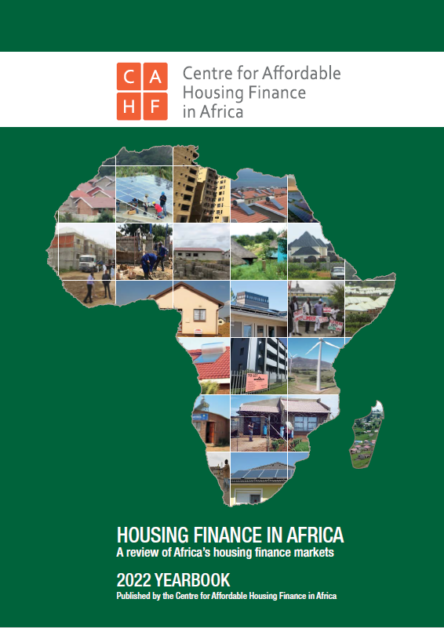2022 Housing Finance in Africa Yearbook
A review of Africa’s housing finance markets

01 January 2022
Centre for Affordable Housing Finance
English, French
Book
Centre for Affordable Housing Finance in Africa
Africa, Europe, North America
With a timely focus on climate change and green issues in housing, this 2022 Yearbook—our 13th edition—provides an up-to-date review of practice and developments in housing finance and delivery in Africa, reflecting the dynamic change and growth evident in the market of each country over the past year. We are extremely proud that the Yearbook has built a significant reputation in the sector, as a credible and unique source of valuable information on country housing markets.
Throughout its 13-year history, the Yearbook has retained a focus on the lower end of the market. While it does provide a general overview of housing, housing finance, and property markets in each country, what makes this publication unique is its explicit emphasis on affordable housing. These profiles focus on the critical need for housing and housing finance solutions that are explicitly targeted at households at the bottom of the income pyramid, for whom most commercially-developed residential property is out of reach. In this respect, the Yearbook remains the only publication of this nature in Africa: no other source provides this type of updated information, focused on residential property, and targeted at the affordable market.
First published in 2010 with just 15 countries included, the Yearbook has grown in scope and depth to contain 55 profiles. For the fifth year, the publication is available in both French and English.
The real strength and uniqueness of the Yearbook are its collaborative nature, and the process of primary, decentralised data collection that underpins it. Individual country profiles are researched and authored by different housing and housing finance experts—where possible, we team up with in-country experts, while in some instances the authors are based elsewhere.
Abstract based directly on source.


Comments